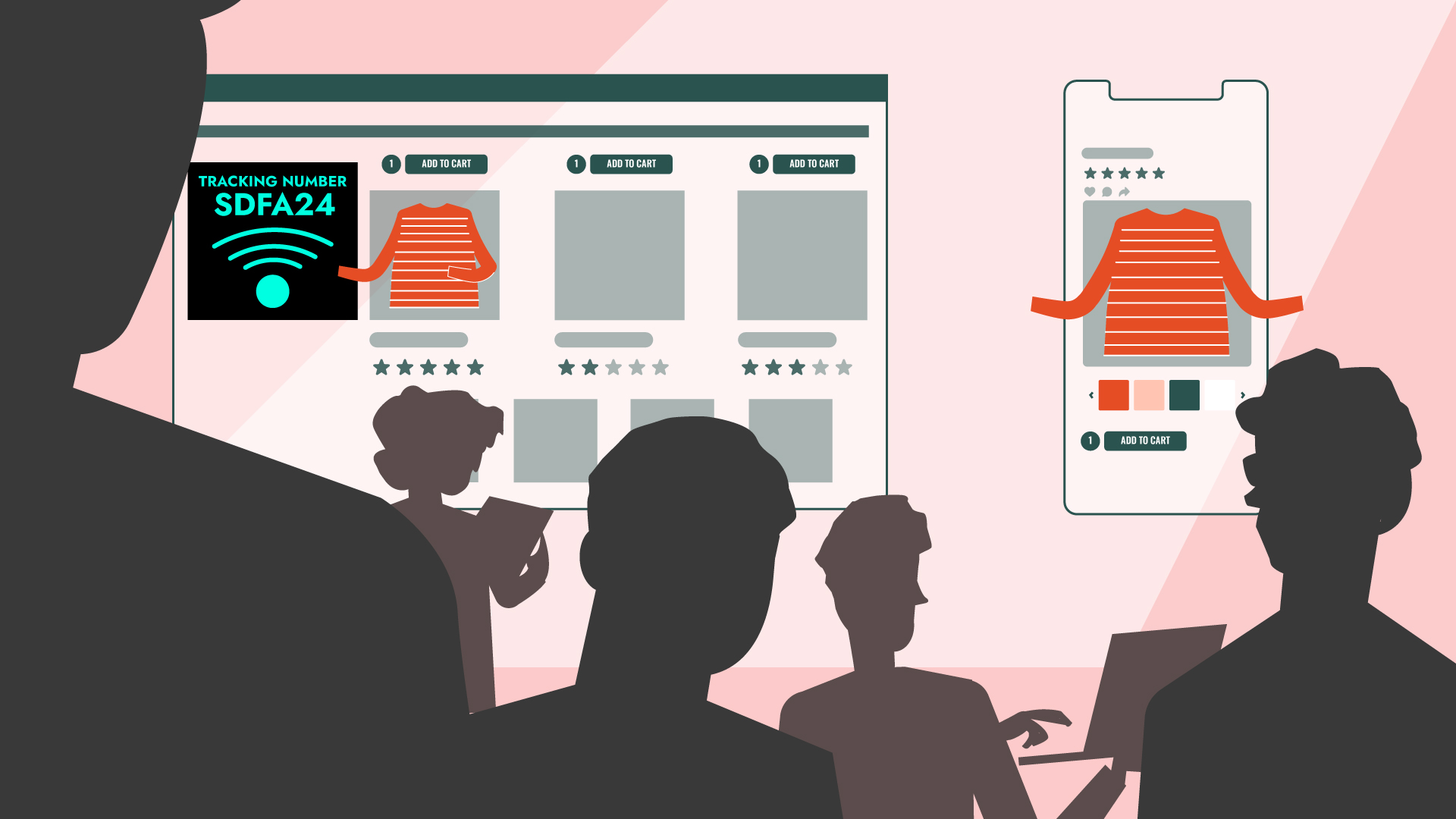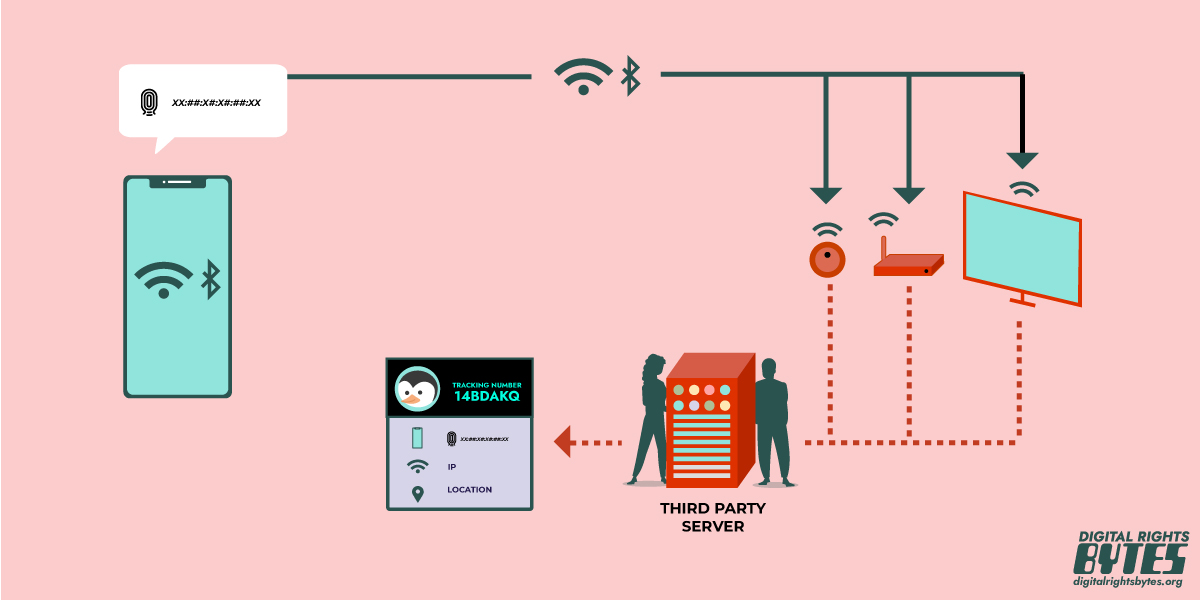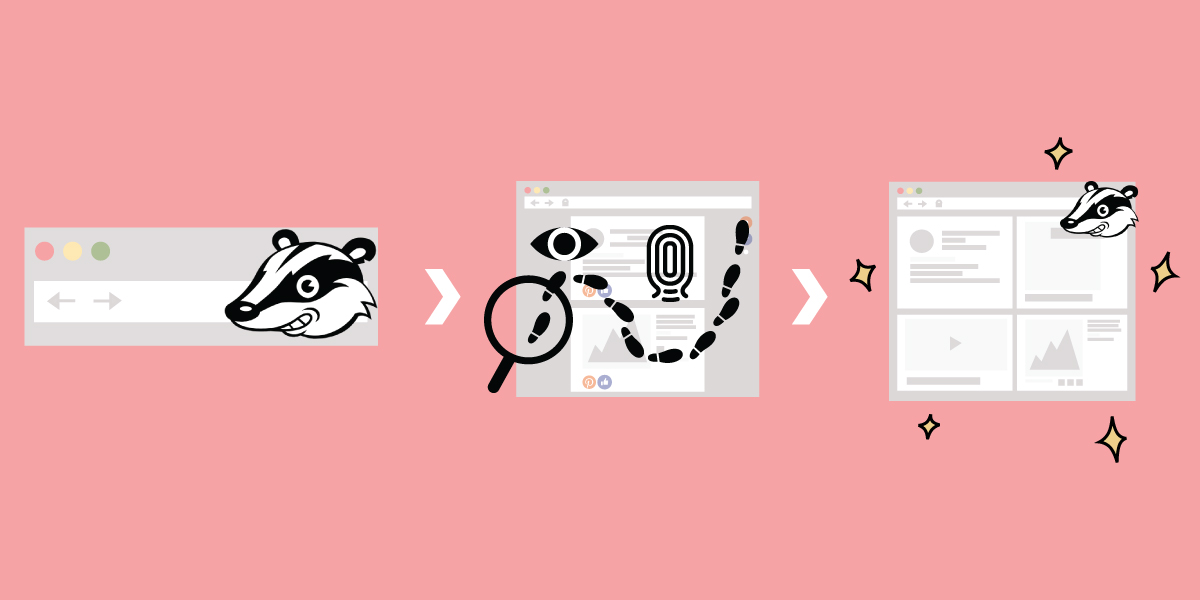Is my phone listening to me?
People sometimes worry that advertisers are secretly listening to us through our phones, especially when we see ads that seem based on our private conversations. But experts say there’s no evidence that this is happening. We agree.
When most people see unexpected ads, it’s because they’ve been targeted based on huge lists of private information about them that was collected in other covert ways. If you feel like you’re being surveilled, that’s because you are. But generally, the data isn’t coming from your microphone—it’s coming from the shady “data broker” market and giant ad platforms that track you across the web, then make very educated guesses about your buying habits.

Here's How It Works
Data brokers are often companies you have never heard of that collect, buy, and sell data primarily for advertising purposes. They use what they can find out about you online—from social media accounts and web pages, for example—with what they can find out about you offline—your age, the type of car you drive, and your address.
These data brokers create detailed profiles with this information, then advertisers make educated, creepy guesses about the kind of things people with those profiles might buy. You're seeing ads about new bed sheets because some people who visited a certain website that you also visited, or who bought the same mattress you did, have purchased new bed sheets—so advertisers think you might want them, too. Or maybe someone in your home browsed online for bedsheets the night before, and now ad platforms are retargeting you with bedsheet ads.
Much of this data isn’t information that users have explicitly shared. It’s information that’s been actively, and silently, taken from them.
A few specific examples of tracking
When you go to a website on your phone or computer, you might be assigned an identifier through a tracking cookie that follows you as you look and search online. This is one method of tracking which follows your virtual activity.
You can also be tracked physically in the physical world. In order to find nearby Bluetooth devices and WiFi networks, your device is constantly sending out short radio signals that contain your device’s unique identifier. Companies can use devices that silently listen for these identifiers in their vicinity, then use that data to track the movement of specific devices over time.

Why this needs to change
Allowing this rampant data collection, sharing, and selling hurts everyone. Companies direct risky advertisements to vulnerable people and exclude certain groups from receiving opportunities. Bad actors misuse that data to spy on or harass individuals. Data breaches put that private info out into the world for anyone to buy. And government agencies and law enforcement can purchase the data without getting a warrant first. (There’s a joke that everyone has an “FBI agent” assigned to listen to their phone. That isn’t true, but government agencies do have ways to access data like this that are in need of serious reform.)
Limits on data collection and bans on these types of behavioral ads will help us in a lot of other ways as well. We’ve got a whole list of them here.
So why aren’t there strong laws to protect us from companies collecting our private information in other covert ways? Simply put: there should be, and in some states there are. But right now, there’s a lot of money to be made in data collection and advertising.

What you can do
Download Privacy Badger to Block Invisible Trackers
EFF's Privacy Badger is a browser extension used by over three million people to stop companies from secretly tracking where you go and what pages you look at on the web. To the trackers, it’s like you suddenly disappeared. Download it on your desktop for Chrome, Firefox, Edge, or Opera. Privacy Badger is also available on Firefox for Android.

Check Your Phone’s Settings:
- Change app permissions on your Android phone,
- Control access to information in apps on iPhone,
- Learn about how mobile phones share your data and how to protect your privacy.
Some operating systems and applications do use your phone’s microphone, with your permission, and some malware or spyware can infect your phone and do it covertly as well. But if an app was listening to you without your consent, the company behind it could be violating some very clear laws and have to face huge fines.
Turn Off Data Collection on Smart Home Devices:
Some data can be collected unexpectedly by some smart home devices.
Learn about and Advocate for US Consumer Privacy Laws:
EFF has your back
The Electronic Frontier Foundation works to defend your digital privacy. Our non-profit organization of lawyers, technologists, and activists build privacy protecting tools and fight in court, in Congress, and across the country to ensure that your communications are protected from unconstitutional searches, government agency spying, and technical backdoors. Over the last thirty years, we’ve won important protections for your privacy, free speech, and innovation rights. Learn more about our work here.